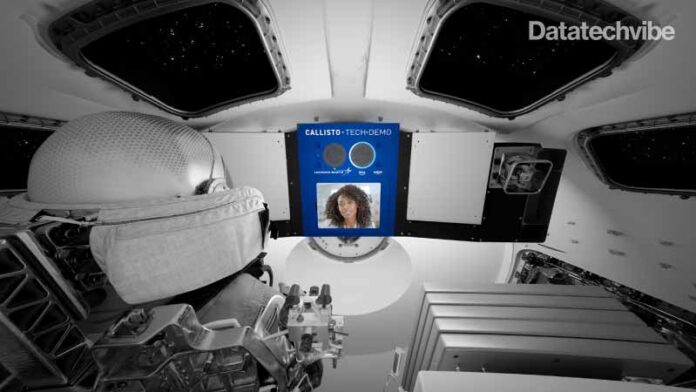Lockheed Martin, Amazon and Cisco have teamed up to integrate unique human-machine interface technologies into NASA’s Orion spacecraft.
The collaboration seeks to provide future astronauts with the opportunity to learn and benefit from far-field voice technology, AI and tablet-based video collaboration.
The payload was designed and built by Lockheed Martin and will be integrated into NASA’s Orion spacecraft for the agency’s Artemis I uncrewed mission around the Moon and back to Earth. It will use Amazon Alexa and Webex by Cisco to test and demonstrate commercial technology for deep space voice, video and whiteboarding communications.
Callisto is named after a favourite companion of the Greek goddess Artemis. The payload features a custom hardware and software integration developed by Lockheed Martin, Amazon, and Cisco engineers. It includes innovative technology that allows Alexa to work without an internet connection and Webex to run on a tablet using NASA’s Deep Space Network.
Since Artemis I is an uncrewed mission, Lockheed Martin, Amazon, and Cisco have worked with NASA to build a virtual crew experience at NASA’s Johnson Space Centre in Houston, allowing operators to interact with Callisto from the Mission Control Centre.
Through these remote interactions, Callisto partners will test and demonstrate how voice and video collaboration technologies can help astronauts improve efficiency and situational awareness during their mission, providing access to flight status and telemetry and the ability to control connected devices onboard Orion.
In addition, video and audio of the interactions will be transmitted back to Earth many times throughout the Artemis I mission, allowing engineers to analyse the performance of the onboard systems while also sharing interactions with the public.
The Callisto technology demonstration will also allow students, families, space enthusiasts and the general public to engage with and virtually “ride-along” with the Artemis I mission.
They can follow the mission on Alexa-enabled devices by saying, “Alexa, take me to the Moon,” and the Webex video collaboration capabilities will offer opportunities for STEM education and remote classroom teaching events.
Artemis I is scheduled to launch in early 2022 from NASA’s Kennedy Space Center in Cape Canaveral, Florida, for a multi-week journey around the Moon and back. Artemis I will provide the foundation for future crewed missions to the Moon and deep space and is part of NASA’s goal to land the first woman and first person of colour on the lunar surface.









